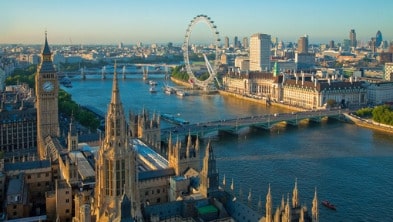London Mayor Sadiq Khan has published an updated Emerging Technology Charter designed to act as a set of practical and ethical guidelines for the trialing and deployment of new data-enabled smart city technology, including face biometrics.
This is the fourth version of the charter, which was first published in July 2020 and developed through an open process of public consultation with subject experts, biometrics developers and other innovators, and Londoners themselves.
The new digital infrastructure aims to, among others, make internet speeds faster, provide vast amounts of real-time data and support a new generation of services and applications. A framework will also be available for a range of technologies like driverless cars, facial recognition software, drones, sensor networks, robotics, mobility services, augmented and virtual reality, and automated and algorithmic decision making.
The Charter is intended to assist in the economic recovery from the pandemic, and the anticipated acceleration in the availability of smart city emerging technologies. The charter therefore sets four principles for implementing technology in London: openness; respect for diversity; trustworthiness with people’s data; and sustainability. “My new Emerging Tech Charter will play a significant part in that recovery, making sure both Londoners and tech businesses are using data efficiently to get the most out of technological innovation,” says Khan, according to UKAuthority.
In support of principle 3, ‘Be trustworthy with people’s data,’ the Charter sets out uses and considerations for biometric data processing via data ethics tools.
The UK Information Commissioner’s Office (ICO) has established criteria which biometric technologies, including live facial recognition, need to meet in order to be deployed. Technologies should also comply with the latest connected places cybersecurity guidance issued by the National Cyber Security Centre. The charter states that consideration of bias, the potential impacts on rights and freedoms of citizens, and demonstrating that other less intrusive measures cannot reasonably achieve the same purpose are included in the standards for adoption of a biometric technology.
However, the use of live facial recognition technology in London has been criticized in the past by the UK’s Biometrics Commissioner, alongside MPs and human rights organizations, especially the technology’s use within police operations.
Details of the ‘Be Open’ principle include a requirement to set out in clear language information about the technology as well as governments’ own basis for its use. This will entail publishing Data Protection Impact Assessments.
“We want to foster a trustworthy environment for innovation to flourish, and to do so responsibly. When a new technology is deployed it’s not easy for Londoners to find out about how privacy risks have been identified and managed,” says Theo Blackwell, the chief digital officer for London.
The charter will also be shared with the Global Observatory on Urban Artificial Intelligence (AI), an initiative launched by London, Barcelona and Amsterdam in June 2021 that aims to monitor artificial intelligence (AI) deployment trends and promote its ethical use, as part of the wider Cities Coalition for Digital Rights (CC4DR).
While the charter is intended to be voluntary, Khan wants to encourage public services, elected representatives, people in the tech industry and interested Londoners to adopt it.
Article: London mayor sets out plan for smart city biometrics with Emerging Technology Charter
